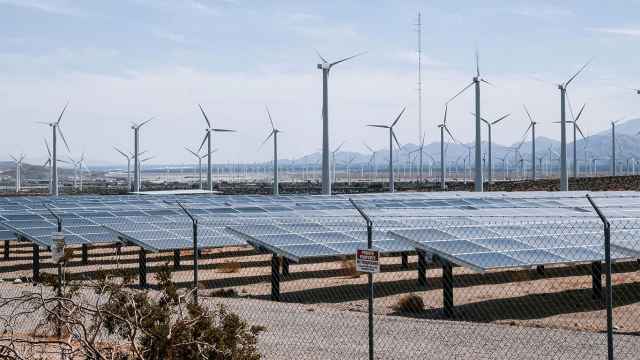
No – to Russian oil and gas, yes – to the extraction of our own raw materials necessary for green energy. The European Commission is developing plans to reduce regulatory barriers to speed up the production of critical materials such as lithium, cobalt and graphite needed for wind farms, solar panels and electric vehicles.
Europe is not the Australian desert
Even before the war, the commission sounded the alarm about the risk of the EU becoming overly dependent on imported raw materials needed for the development of green energy. For example, according to her, by 2030, demand for rare earth materials for wind turbines in the EU will increase fivefold, while global supply is projected to only double. According to calculations by the EU Joint Research Center (JRC), demand for lithium by 2050 could be almost 60 times higher than current consumption. The demand for cobalt and graphite can be almost 15 times higher.
“Demand is increasing sharply due to the transition of our society to digital and green technologies, [но] We are too often almost entirely dependent on imports, and the geopolitics of supply chains are becoming increasingly unstable,” said EU Commissioner for the Internal Market Thierry Breton. Therefore, there will need to be an “open debate” about the extraction, processing and reuse of natural resources in Europe itself, says Breton:
We choose to import them from third countries and turn a blind eye to the environmental and social impacts there, not to mention the carbon footprint of imported supplies. But mining in Europe doesn’t have to be a dirty business.
The Barroso lithium mine in Portugal is a great example of the challenges that arise along the way. British Savannah Resources planned to begin its development back in 2020, but pending permission from Portuguese environmental authorities, it has already postponed the start of work several times. The regulator recently added another requirement, and Savannah postponed them again – to 2026.
Australian Dale Ferguson, the company’s interim CEO, is not surprised by the slowness: “You can’t compare a mine on the edge of the Australian desert to a project in Europe.”
However, over the past 30 years, Portugal has not given a single permit for a large mining project. Therefore, the EC is developing a Natural Resources Law designed to stimulate production in the EU.
Among the main ideas are the inclusion of key strategic projects in the list for accelerated approval, the creation of a one-stop system for obtaining permits, and measures to speed up national processes in case of problems. Plans are also underway to improve recycling so that metals from old cell phone batteries, car batteries, etc. can be used.
Exorbitant demand
Natural resources in the EU are underdeveloped, with investment in mining at the lowest level of any major region in the world, a 2021 JRC report found.
Demand, meanwhile, is growing. The EU has set a goal of obtaining 32% of all energy from renewable sources by 2030, while the European Parliament insists on 40–45%. In 2020, according to the EC, this share was 22%.
However, the EU produces only 1% of the world’s lithium-ion cells – versus 66% in China, according to JRC.
Trade association SolarPower Europe expects a record 34 GW of photovoltaic cells to be installed this year (up from 28 GW in 2021), says its policy director Dris Ak, and then much will depend on the availability of the necessary raw and processed materials.
But while Breton calls for increased domestic production, some other EC members believe it would be better to develop trade ties with other countries. Trade policy priorities are changing due to geopolitical issues and the EU needs to make more deals with “like-minded partners,” Trade Commissioner Valdis Dombrovskis said in July. He intends to conclude an agreement with Chile on lithium production by the end of the year and with Australia in the first half of 2023.
But the EU shouldn’t expect all the answers to be found abroad, says Savannah’s Ferguson:
Some of these projects [в Европе] it is necessary to carry out and begin production as soon as possible.

